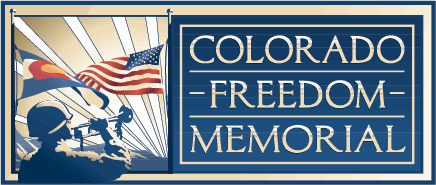Source: Compiled by Homecoming II Project 01 September 1990 from one or more of the following: raw data from U.S. Government agency sources, correspondence with POW/MIA families, published sources, interviews. Updated by the P.O.W. NETWORK 1998.
SYNOPSIS:
2LT David W. Skibbe and CAPT Lavoy D. McVey were both members of the 1st Reconnaissance Battalion, 1st Marine Division, but in different companies. On March 2, 1970, Skibbe's recon team was operating in Quang Nam Province, South Vietnam, about 10 miles northwest of the city of An Hoa when they engaged in a firefight with enemy forces. During the skirmish, Skibbe was injured by small arms fire.
The corpsman in attendance described the injury as a "penetrating wound of the lower right leg, breaking the fibula 2" above the ankle leaving an open fracture. Hemorrage was moderate and eased after a pressure battle dressing was applied." Dave's broken leg was immobilized by the application of a splint constructed from a small tree limb. Skibbe was in good mental command and continued to lead and encourage his men. The corpsman was at the same time treating another teammember who was more seriously injured.
Shortly after treatment was administered, an emergency medical evacuation helicopter appeared in the recovery area, flown by a Marine major. That officer reported that he positioned his helicopter in a 75-100 foot hover above the team and under the direction of his crew chief, lowered the hoist cable, to which a jungle penetrator was affixed, as there was no suitable landing zone.
After initial extraction of the more seriously wounded Marine was completed, Skibbe was fastened to the seat of the lift device by other members of the team and was slowly hoisted into the air. Team members later stated that they last saw Skibbe as he cleared the canopy which in some areas was 30-40 feet in height. They lost sight of him as he cleared the trees and assumed that he had been drawn safely into the aircraft.
From the helicopter into which Skibbe was being hoisted, his company commander, Capt. Lavoy D. McVey, the medical officer, pilots and crewmen, watched Skibbe's ascent into the aircraft until he reached a point about 20 feet from the chopper (100 or more feet altitude). At that moment, the hoist cable suddenly snapped and Skibbe fell to the ground, clearly visible to those onboard the helicopter, falling into heavy foliage which obstructed view of his actual impact with the ground.
The pilot of the recovery helicopter immediately contacted the team on the ground by radio and they radioed "yes, he's ok." The pilot interpreted this to mean that the team knew that Skibbe had fallen and had located him. The pilot, therefore, swung about, lowered the extract ladder for the remainder of the team from a distance of about 100 feet. The team immediately affixed themselves to the ladder, again unaware that Skibbe had fallen very close by, and were hoisted into the air for the return trip to An Hoa.
The pilot, believing that Skibbe had been strapped to the ladder, continued with the extraction. The team, believing that Skibbe was safely onboard the aircraft, rode on to An Hoa. It was at An Hoa that the pilot and team mutually discovered the error. Both helicopters that had been on the extraction returned to the area, and an attempt was made to insert Capt. McVey to search for Skibbe. It was during this insertion attempt that McVey also fell to his death.
Because of the enemy position and dense jungle, it was decided not to attempt another insertion. To do so might have caused the loss of even more men. Although it was widely believed that both men sustained fatal injuries in their falls, no sign of the two was ever located in later searches.
Submitted by Alan H Barbour, Historian, USMC Combat Helicopter Association
Comment on Incident:
The above two officers were killed on related missions, though not the same mission. Capt McVey was killed on a rescue mission while searching for 2ndLt Skibbe, who was missing (and presumed dead) on an earlier mission mishap. Capt McVey gave his life for his fellow Marine under very hazardous circumstances. Captain McVey was awarded the SILVER STAR posthumously for his heroism on this mission.
Comment on Incident:
Fall from a jungle penetrator, at night, while flying away from a hot zone SW of An Hoa. As heard at the time, his team was running /gunning, got up into the H-46 [for extraction]. When they realized they were short one, went back in, found him, got him on the hoist, and then was last one up - handed his weapon thru to CC, who turned away to lay it down, turned back to help the skipper through the hatch, and found only the end of the cable---all this under light from a Basketball mission, and flying away. This would have been 1970---had known the Skipper as an acquaintance when he was the Club Officer at the stumps [29 Palms] in '68-'69. Think he left a wife and three daughters, have always wondered if the appropriate medal was issued. [Silver Star - 2Mar70]
Family Narrative:
We honored Capt. LaVoy D. McVey (Mac) on 3/1/03 with the help of some amazing Marines. Friends and family flew in from all over the country. It was held in Washington State where the Captain's sons live. Three months later LaVoy's two surviving sons, Jeff and Shawn McVey, traveled to Tennessee to Colonel Drumright's home. (He was Capt. McVey's C.O. and was on the helicopter that fateful night). It was a very healing trip for all involved. Sadly, the Colonel passed away a few months later. The memorial brought many new lives together forever and it was a very informative and amazing event.
Submitted by Sally McVey, daughter-in-law


